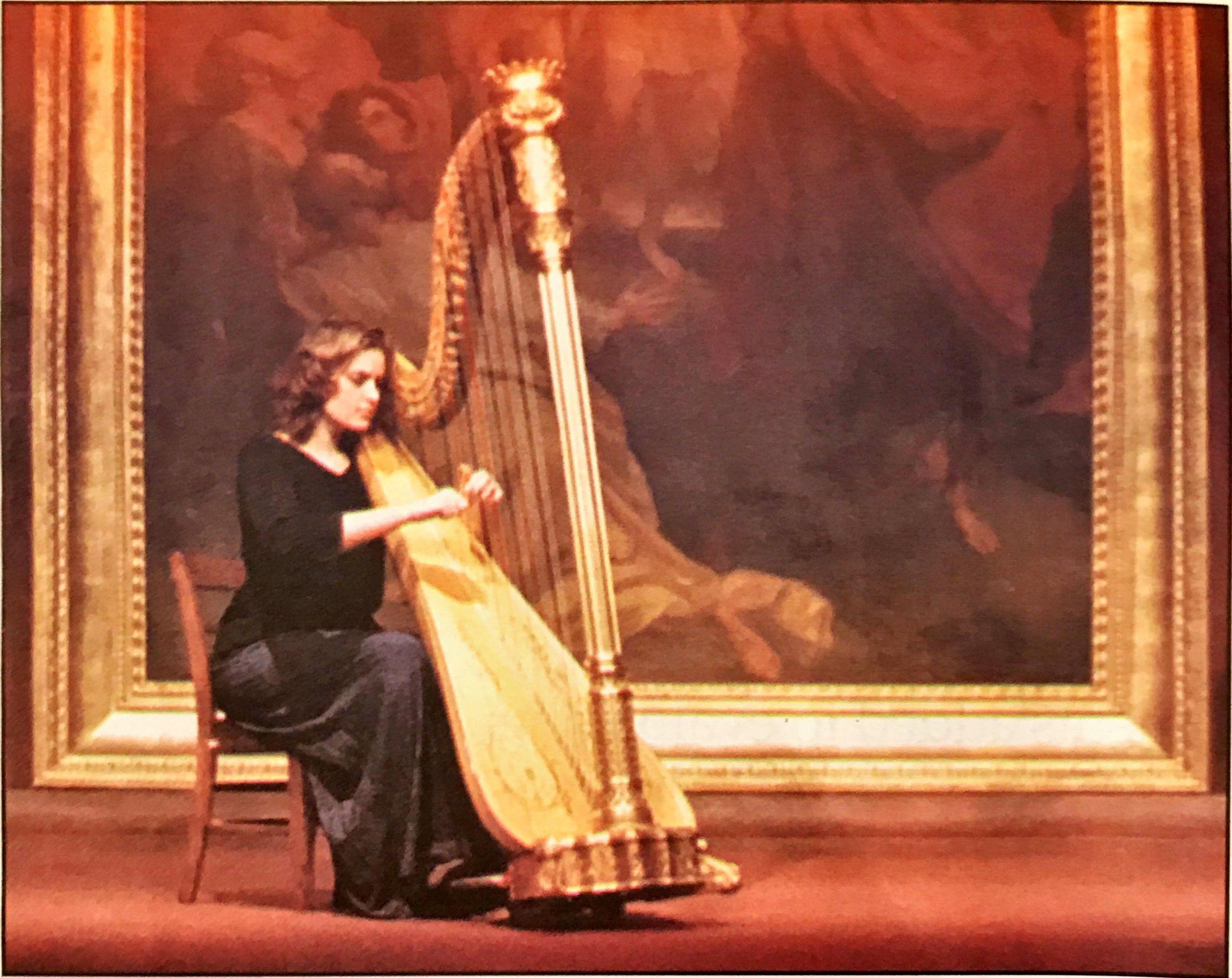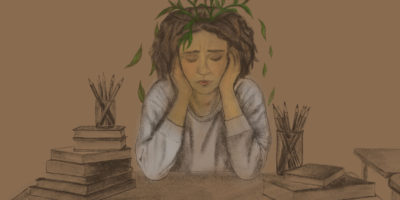By Don McHoull
A few minutes before 11 a.m. on a warm South Carolina Wednesday morning, thousands of students converge on on the Bob Jones University Founder’s Memorial Amphitorium for the daily chapel service.
They travel neatly along the covered sidewalks, obeying signs that say, “Keep off the grass.” Adhering to the school’s strict dress code, the male students wear collared shirts and the female students wear skirts or dresses that are at least knee-length.
The service opens with a hymn and recital of the university’s creed, which every student knows by heart. It begins “I believe in the inspiration of the Bible,” and goes on to outline the university’ belief in God’s creation of humans and the power of Jesus to redeem people from sin.
The service is held in a massive theatre that seats more than 7,000, but because there are only about 5,000 students enrolled at BJU, most of the upper balcony is empty. Each student has an assigned seat and is require to be in it each morning. Row monitors take note of empty seats and unless students can offer convincing explanations for their absence, they receive demerits.
Students also receive demerits for showing up late for class. Other offences are taken more seriously. Students aren’t allowed to drink alcohol, smoke, use drugs, attend rock concerts, watch Hollywood movies or have physical contact with members of the opposite sex.
About 40 students are expelled each year for violating these rules.
They may seem archaic and rigid to the outside world, but the people who learn and worship within the school’s walls say discipline is partly why they attend BJU. While the media has focused on the sensational allegations of racism and BJU’s ban on interracial dating, students say it’s simply misunderstood.
Bob Jones University is located deep in the Bible Belt in Greenville, South Carolina. It was founded in 1927 by evangelist Bob Jones as a liberal arts university based on fundamentalist Christian values. BJU doesn’t receive government funding and is the only university in America that has to pay taxes yet tuition and boarding are $10,000 U.S. a year, cheap for a private American university. BJU subsidizes student fees with money from BJU’s publishing company and pays professors less than they would earn at other universities.
Every class begins with a prayer. Students in the single-sex dorms say a group prayer every night before lights out at 11 p.m., and the entire school attends chapel every weekday morning. BJU students seem happy with their serene arrangement.
At mealtime, students leave their bags and jackets in a pile outside the dining room’s door and there are no lock on dormitory rooms. The women’s and men’s dormitories are across campus from each other and students aren’t allowed in the dorms of the opposite sex.
But the peace of BJU’s sprawling green campus was broken on Feb. 2, 2002, when then-presidential candidate George W. Bush stepped up to the massive wooden pulpit on the Amphitorium’s curved stage to deliver a speech.
There was nothing remarkable about him speaking at BJU—Republican candidates from Ronald Regan to Dan Quayle have made the university a standard campaign stop in the crucial state of South Carolina in the primary stage of an election.
And nothing that Bush said was extraordinary, either. “It was just another presidential speech,” says Jonathan Auman, a third-year art major.
The controversy came out of what he didn’t say.
He failed to criticize the university on its anti-Catholic views—including a statement made by university president Bob Jones III calling the pope an Anti-christ—and ban on interracial dating Bush’s political opponent suggested he _ implicitly _ the university’s views.
This set up a media firestorm. Reporters….descended on the campus and editorial pages across the country condemned the school for being racist and bigoted. By the end of the month, BJU had banned reporters from coming on campus.
“If they’re not going to get it right, why should we let them come on campus,” asks university spokesperson Jonathan Pait.
But even he admits the interracial dating ban was somewhat out of date.
“In my point of view,” Pait says. “It was sometimes hard for me to defend in a logical way.”
The ban was implemented during the 1950s after the parents of a Korean girl complained when she married a white student she met while attending BJU.
At the time of the ban, the university claimed the Bible stated God created all race perfectly, and blending races would lead to the coming of the Antichrist.
The tune changed by the time Jones III, grandson of the university’s founder, appeared on Larry King Live last March. He announced an end to the interracial dating ban.
Pait says the university finally decided the rule was no longer worth the negative publicity it generated.
“The media needs some more conservative voices,” says third-year journalism student Melissa Johnson. “It wasn’t objective.”
Some students took the media hype in stride, posting the latest overblown anti-Bob Jones editorials on the doors of their dorm rooms and joking about them.
Johnson says the controversy fave her and her classmates a first-hand opportunity to analyze the media coverage.
For other students, however, the controversy opened up wounds as old as America itself.
Lauren Walker, a second-year journalism student, remembers reading an article that said there were no black students at BJU.
“I looked at myself and said, ‘I used to think I was black, but what am I?’”
The university doesn’t keep racial statistics, but a look around the campus makes it clear there are few black students.
“I haven’t seen more than 20,” says black student Alex Piani, a first-year graduate student studying to be a marriage counsellor.
He sits in the 3,000-seat dining room and pokes at the gravy-covered potatoes on his plastic tray, pondering the way the media portrays the school as being racist.
He says only God can decide if interracial dating is right.
“If [God] wants me to marry a Caucasian woman, I’d be fine with that as long as my parents and everybody [were] fine.”
Black student L.J Iwalusayi, a third-year missions major, says he isn’t sure the ban properly interprets the Bible but didn’t have a problem living under it when he arrived at BJU almost three years ago.
“I was dating a black girl, and it never really bothered me in the first place,” he says.
Iwalusayi says he chose BJU because he wants to be a missionary and spread the word of God throughout his family’s native Zaire. Only the media think BJU is racist, he says, and they’ve never really spent any time on campus.
“We’re here, we’re black, we know what it’s like and we’ve seen the love of Christ.”
Spokesman Pait says that BJU is not racist. The school gave its 1998 Alumni Appreciation Award to a black man, and Jones III publicly called for South Carolina to stop flying the Confederate flag.
Beyond race, beyond what the rest of the world may think, students come to BJU from around the world for an American education firmly rooted in Christian morality.
BJU offers almost 120 different majors, more than any other Christian university in America. All classes from church music to missionary aviation—where students receive missionary training while learning how to fly and maintain an aircraft—are taught from a Biblical perspective.
In science classrooms, creationism holds its own against the theory of evolution. Political science students study the history of religion in American politics. When homosexuality is mentioned, it’s discussed as a mental illness.
BJU draws its students from private Christian schools and home-schooled Christians in the U.S. and abroad.
Keith Phillips, a BJ graduate and headmaster of a Christian school in Minnesota, says BJU exerts great influence over the curriculum of Christian elementary and high schools.
Many are already using Christian textbooks produced by the BJU Press and Pensecola Christian College in FLorida, the largest Christian publisher in the U.S.
BJU Press published about 310 titles last year, ranging from kindergarten Bible studies to Grade 12 algebra books—all infused with a Christian perspective.
“There aren’t any other Christian publishers that offer this scope of textbooks,” says Phillips.
Through the school’s BJ LINC program, instructor from the university give lessons to students on television to more than 200 schools across America. About 20,000 students, including home schooled students, view programs in science, math and language each week.
After receiving a Christian education all their lives, many students want to maintain a Christian lifestyle free of the temptations of secular universities.
“I have friends who go to public schools, and they say that there’s stuff like that going on all the time, where you have roommates offering you drug, and having sex while you’re trying to study,” says Dave Talbert, a second-year church music major from Calgary. “Obviously that would influence you.”
Some students come to BJU hoping the strict rules will reform them. John Morgan, second-year Bible student, admits that he was addicted to crack cocaine and BJU helped him turn his life around.
BJU doesn’t believe in and can’t afford to offer academic or athletic scholarships, but didn’t stop James Cowan, a second-year political science student, from attending.
Cowan was a star soccer player in high school in Flint, Mich., and had a 3.5 grade point average. He was offered a full scholarship to play NCAA soccer at Abilene Christian University in Texas, but turned it down to attend BJU.
“I felt Bod wanted me here at this university,” he says. “I couldn’t even explain it.”
Second-year student Jim Wassel was a practicing Catholic until his final year of high school in Indiana, when he was introduced to fundamental Christianity.
“There was always something in me that said you’re still missing something, you don’t have what you need,” he says. He became a born-again Christian.
But he had already accepted a scholarship to the pre-med program at Xavier University in Cincinnati, Ohio. After a year, he transferred to BJU to study to be a science teacher in a Christian high school.
Wassel confesses his decision caused some tension with his Catholic parents. They thought he hated them. In the years since he has arrived at BJU, he has come to an understanding with his parents, although his mother is wary of BJU.
“She wants tolerance for all religions,” he says. “And so, in effect, she is not really in support of me.”
His father, who pays most of his tuition, has a more philosophical take on his son’s education. “He views it like, ‘It’s an education. It’s biased like all education is, but it’s what he wants,’” Wassel says.
Sitting among his friends in a BJU drom room, Wassel defends his school against the attacks of liberals and the media.
“We take a stand against immorality and idolatry and worship of money and material goods,” he says. “That’s so unpopular because people don’t know what the Bible says.”










Leave a Reply